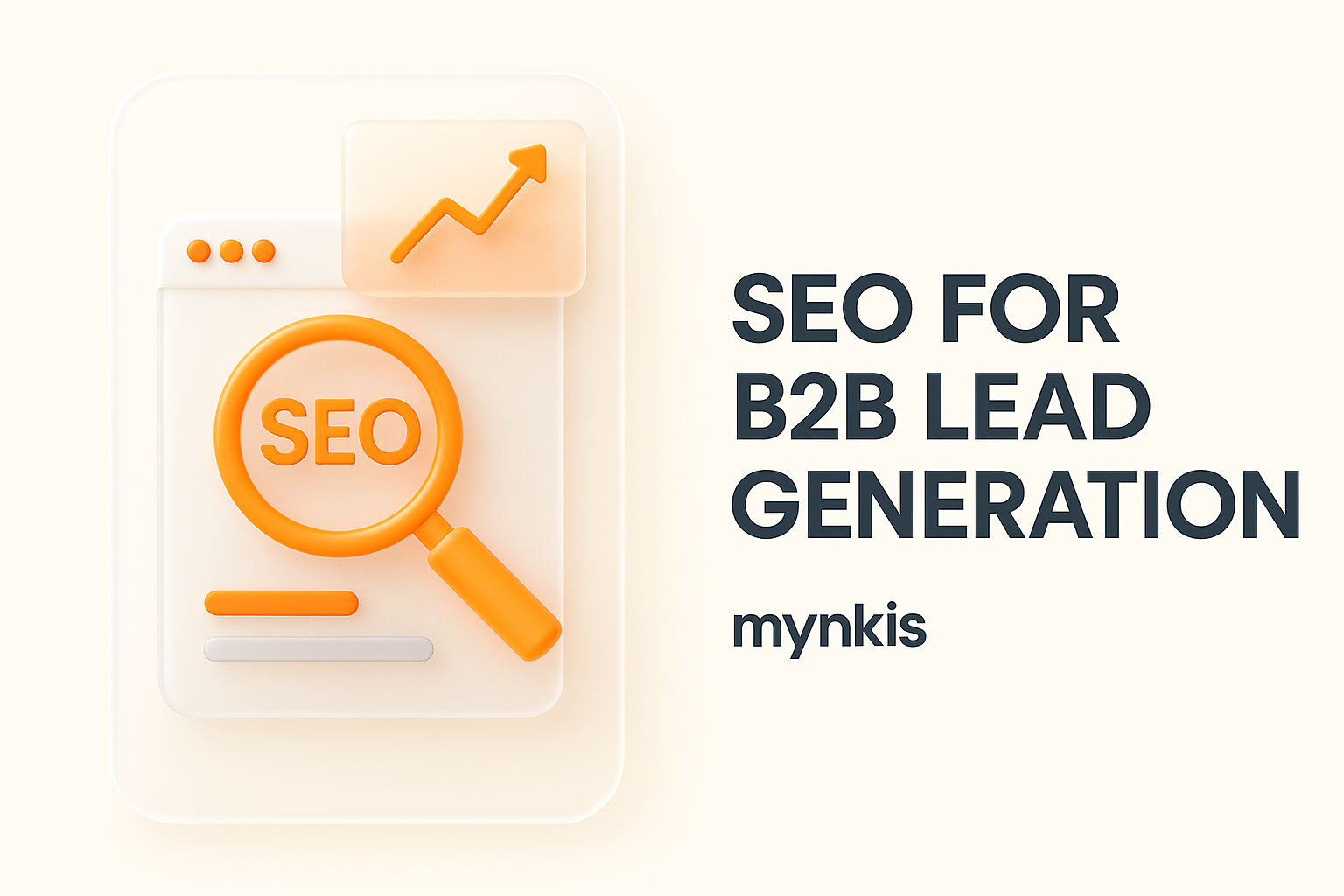Schedule a Demo
In my experience working with various firms, I've noticed a significant shift towards prioritizing SEO as a crucial element of digital strategy. Search Engine Optimization isn't just about ranking higher on Google; it's about reaching the right audience at the right time with content that resonates. B2B companies, in particular, need to leverage SEO to increase their lead generation capabilities. By optimizing their websites, they can attract qualified leads, streamline their sales funnel, and ultimately boost their bottom line.
Let's dive straight into the foundation of any solid SEO strategy: keyword research and content creation. From my perspective, this step is essential for targeting the right phrases that potential clients use to find solutions like yours. When done correctly, keyword research can reveal insights into the language your prospects use, which then informs your content creation. A strong content strategy revolves around crafting articles, blog posts, and pages that seamlessly incorporate these keywords. Not only does this make your site more discoverable, but it also positions your firm as a thought leader in your industry.
On-page SEO is a game-changer for ensuring your website's pages are search engine-friendly. I've seen first-hand how elements like title tags, meta descriptions, and header tags can significantly enhance a page's visibility. The judicious use of keywords within these elements helps both users and search engines understand what your page is about. Additionally, optimizing images with descriptive alt tags and ensuring your URLs are clean and concise can amplify your site's SEO health. These might seem like small tweaks, but collectively, they're vital for converting organic traffic into qualified leads.
Technical SEO is where many firms falter, yet it's a fundamental part of website optimization. This encompasses site speed optimization, mobile-friendliness, and proper use of schema markup. Based on available research, sites that load in two seconds or less see significantly higher engagement rates compared to those that take longer; individual results may vary, but this underlines the need for a speedy site. Similarly, with over half of web traffic now coming from mobile devices, having a responsive design isn't just a bonus—it's a necessity. And with schema markup, you're providing search engines with additional context, which can lead to rich snippets that enhance your visibility and click-through rates.
While on-page and technical SEO are crucial, let's not overlook the power of off-page SEO, particularly through link building. I've worked with numerous clients who've transformed their lead generation after implementing a strategic link-building campaign. This isn't about spammy tactics but about cultivating relationships and earning high-quality backlinks from reputable sources. These backlinks not only drive traffic but also lend your site credibility and authority in the eyes of search engines. As Deloitte mentions in their analysis of B2B marketing trends, trusted links can be one of the most significant drivers of organic SEO success.
The journey of SEO optimization doesn't end with implementation; it requires ongoing monitoring and refinement. I always recommend using tools like Google Analytics to track your website's performance metrics. Understanding where your leads come from, which pages perform best, and what keywords drive the most traffic can help you iterate and improve your strategy. Regular analysis ensures your SEO tactics stay aligned with evolving search engine algorithms and market trends, maintaining your site's competitiveness in B2B lead generation.
Personalization is a buzzword that resonates deeply with B2B SEO strategies aimed at lead generation. By segmenting your audience and understanding their pain points, you can tailor your content and SEO approach. I've guided firms to focus on the buyer personas most relevant to their products or services. By addressing the specific needs and queries of these personas, you can enhance the user experience and increase conversion rates. As McKinsey & Company noted, personalized experiences can lead to increased engagement and loyalty—a critical aspect of B2B marketing.
Content marketing is the fuel that drives effective SEO. I've observed how firms that consistently produce high-quality, informative content benefit from enhanced SEO performance. This content, when optimized for relevant keywords, not only boosts your site's ranking but also engages visitors, encouraging them to spend more time on your site and potentially convert into leads. From comprehensive guides to industry analyses, make sure every piece aligns with your SEO objectives, reinforcing your position as an industry expert.
Every industry has unique SEO challenges and opportunities. For instance, in sectors like manufacturing or tech, long-tail keywords related to specific products or solutions can be particularly effective. I've worked with clients in these fields to craft strategies that focus on niche terms and phrases that their B2B audience actively searches for. By addressing sector-specific queries, you can better target those leads who are further down the sales funnel and ready to make purchasing decisions.
Although B2B firms often operate nationally or globally, local SEO remains a potent tool for regional lead generation. I've seen remarkable success when we've optimized content for specific geographic areas. By claiming and optimizing Google My Business listings, engaging with local directories, and targeting location-specific keywords, firms can capture local B2B audiences and drive meaningful leads. For instance, if you're a software firm in San Francisco, leveraging local SEO can tap into the vibrant tech ecosystem of the area.
Finally, let's touch on the essential task of measuring and reporting your SEO performance. Without clear metrics and KPIs, understanding the impact of your SEO strategy becomes challenging. I encourage clients to set up dashboards that provide real-time insights into key performance indicators such as organic traffic growth, keyword rankings, and lead conversion rates. Regular reporting not only helps you track your progress but also demonstrates your firm's marketing effectiveness to stakeholders, enabling informed strategic decisions.
